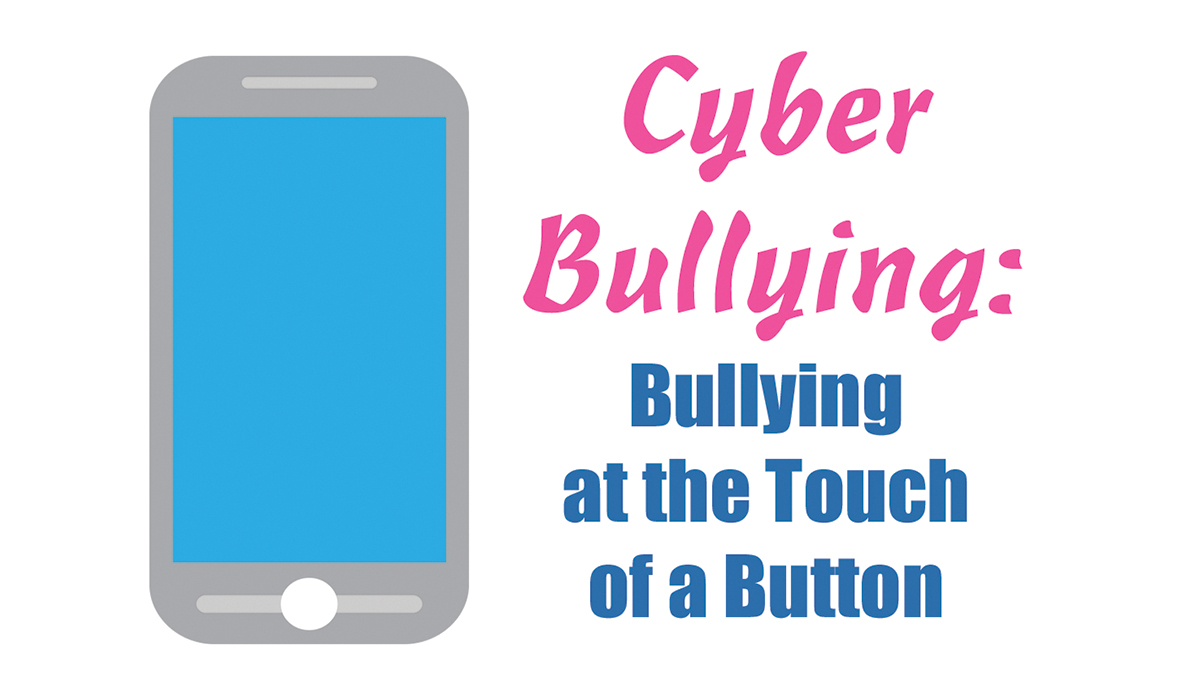Cyber bullying: Bullying at the Touch of a Button

By Sarah Naron
Messenger Reporter
In generations past, students who fell victim to bullying at school would undoubtedly breathe a sigh of relief when 3 p.m. rolled around each day. Finally, it would be time to retreat to the solace of home and enjoy a peaceful evening free from the taunting and teasing that followed them through the halls during the day.
Since the late 2000s, technology has continued to gain prominence in everyday life. Gadgets such as smartphones and computers can be used to order takeout, complete banking transactions and carry out numerous other tasks that once were not so easy to do unless you were face-to-face with another person at the touch of a button.
Unfortunately, as one high school student pointed out during a recent interview with The Messenger, it has also opened the floodgates to what is known as cyber bullying.
“The Internet has, like, a big thing behind it, because you don’t know who the person actually is unless you can prove that it’s them,” she explained. “Like, texting and Instagram and all that has a big role in it, because they can say stuff that they wouldn’t say exactly to (your face).”
The student went on to share an experience in which she found herself a victim to this 21st century torment at the hands of a female classmate and her boyfriend.
“He would always flirt with different people,” the student explained. “He would change the contact names in his phone to girls in school to start drama between his girlfriend and some other girls at school.
“She would get on his social media and say, ‘Well, you’ve been talking to him every day,’ and I’m like, ‘No, I have not,’” the student divulged. “She would show everyone those messages, but the messages weren’t from me, they were from some whole other person that I didn’t even know about.”
The student explained that the messages, which were made to look as if they were being sent from her phone, were flirtatious in nature.
“They had, like, messages to meet up and stuff like that, so it looked really bad,” she said. “I mean, we live close together – like, maybe a couple miles down the road – so, it seemed like it could happen. The messages were believable, but there’s no way to prove that it wasn’t me unless you go on his phone and look at the number.”
Although the principal was notified of the issue by the victimized student and several other students, no repercussions were ever experienced by the perpetrators. The students were encouraged to simply avoid one another if they were unable to get along.
“The teachers just don’t really pick sides or help,” the student said.
Since the incident, the student has cut off contact with the other students and said her situation has improved.
“I stopped talking to (them) a couple weeks ago and made sure that I don’t have them on any social media,” she explained. “She always gives me dirty looks and stuff like that, but now, I just don’t talk to her anymore.”
Going to school, the student said, remains difficult despite her efforts to move past the issue.
“All of those people don’t know that it wasn’t me,” she pointed out. “They still think, ‘Oh, well, it was you; it says your name.’ Well, just because it says my name doesn’t mean it’s me. But they don’t know that, and they’re not going to believe me over the messages and the pictures and all that stuff.”
When asked what advice she would give to other teens in her shoes, the student encouraged those experiencing bullying to bring the issue to the attention of an adult.
“If you are bullied in school, tell a teacher and see if that helps,” she said. “And then, if you are bullied on the Internet, just don’t say anything to it and show someone, like a parent or a guardian or whoever’s near.
“Don’t act out on it, because then, they see that it bothers you,” she continued. “Just try to be strong and act like it doesn’t.”
Houston County Attorney Daphne Session explained that while there is no specific section within the Texas Penal Code that designates cyber bullying a crime, the issue may still be addressed through several statutes of the code.
“The consequences for cyber bullying range from a fine to imprisonment,” Session reported. “It depends on the conduct or behavior and the evidence.”
As Session pointed out, cyber bullying is an issue which is becoming increasingly problematic in communities across the country.
“Social media is the tool for cyber bullying,” she said. “Social media has become the primary means of communication for many young people. It is on 24/7 and hard to get away from.”
Session encouraged those who are facing cyber bullying to report the problem to a trusted adult such as a parent, counselor or teacher.
“Tell someone that is willing to help,” she said. “If the cyber bullying rises to a criminal offense under our penal code, the person should notify law enforcement and school officials.”
Sarah Naron may be reached via email at [email protected].






